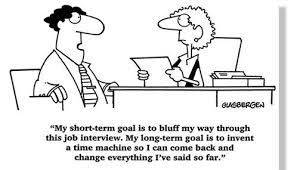Is the Interview Process Flawed?
Recruiters and human resources professionals are creating interesting dialogue around various interview techniques and wondering if they are flawed or not. The process probably hasn’t changed much in the past decade, with the attitude ‘if it ain’t broke, don’t fix it’ and could be considered an artificial environment. Shifting the routine and making changes could result in more effective interviewing techniques and processes and the start of creating more robust, more committed teams.

High Turnover Rates
Most hiring manager still insist that interviews are a fundamental requirement for hiring the right person. However, with staff turnover rates of almost 50 per cent during the first year of employment, that’s clearly not the case.
Chemistry
Typically, the way hiring managers assess candidates can be somewhat skewed and subjective and can be based on inadvertent assumptions and preconceptions of the interviewer, even down to the chemistry and interaction of the interviewer and the candidate, appearance, tone of voice, and mood.
Logically, interviews should not be the sole basis when making a hiring decision. An interview shows how candidates behave in a professional setting, but there is little evidence shown during this short time to assess how they would perform in the job environment. It’s important to remember that some people may interview poorly but have the perfect technical skills required for your team. Others may interview perfectly and be a great fit on paper but will not fit your company culture.
Multiple Assessments
It's essential you use every opportunity throughout the application process to evaluate candidates and find multiple ways to assess their skills and experience. This could include timeliness and attention to detail gauged through communications processes, specific role-targeted tests or questions so that the candidate is not judged purely on their personality or interview skills or lack thereof. It’s vital that hiring managers move away from historically used techniques and questions such as "Where do you see yourself in five years?" or "Tell me about a time when you demonstrated you were a team player”.
References
Reference taking also allows you to ask relevant questions about the candidate’s competency and team spirit. During the reference process, recruiters can question how the candidate handled situations in the past and begin to understand their overall behaviour within their previous roles. Hiring managers must take time to learn about the candidate and their interest in the role to assess their strengths and weaknesses. The candidates should also have plenty of opportunities to ask questions throughout the interview.
Smart Hiring
A smart hiring process will allow the candidate to meet multiple people in individual and group interview formats to prevent bias. This hiring process should remain consistent to compare like with like. Expanding the pool of interviewers to those who have hands-on experience allows a better understanding of role requirements and if the candidate is suitable for employment. Solely counting on the hiring manager could lead to a poor hire.
Behavioural-Based Interviews
Where possible, develop a behavioural-based interview format so candidates have ample opportunity to demonstrate their potential for success by providing examples of how they handled similar situations based on their experience. The technique is based on the idea that real past experiences are a solid indicator of future performance. Instead of the recruiter using hypothetical questions, the candidate provides examples from previous job knowledge and moves away from possible duplicitous and planned responses. By using the STAR approach, interviewers can strategically structure the questions so that the candidate can demonstrate a specific
Situation or behaviour, the
Tasks involved,
Actions taken and
Results.
Follow-Up Interviews
Hiring managers should conduct follow-up interviews since they best understand their team's requirements. While human resources specialists can conduct an interview, they won’t know as much about the role as a person with hands-on experience. It’s prudent to involve at least three company stakeholders in the interview process. A flawed interview process can cost the company considerably with poor hiring decisions, high turnover, and possible relocation costs.
Individual Recruiting Methods
It's important to remember that not every interview technique and process works for every company. No role or candidate is the same as the company’s needs will change over time. It’s essential to look at failings and successes and adapt so that departments can hire the best candidates.



